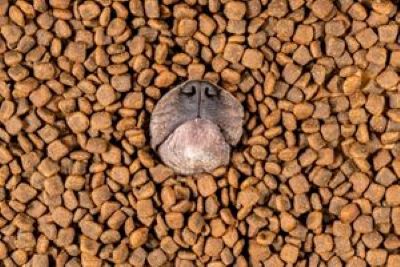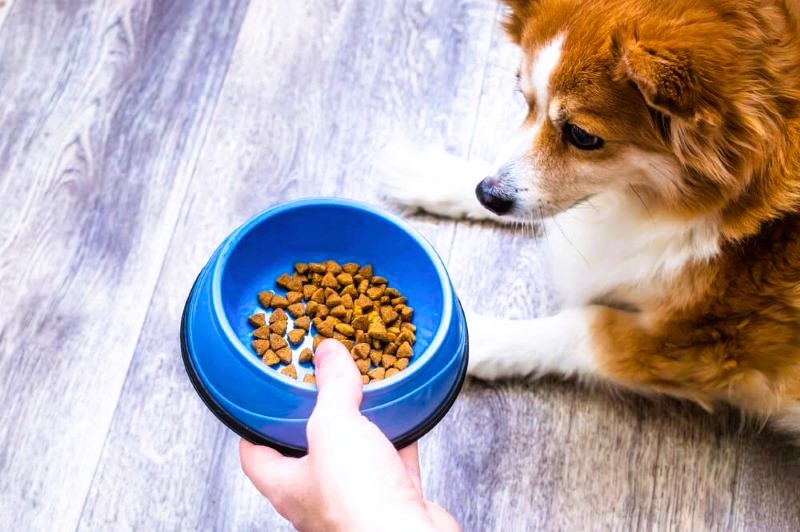Your dog’s nutritional needs must be carefully managed, and this includes things like feeding it the correct food and controlling how often it gets treats. To add to the complexity, much of what you believe you know about canine nutrition may be completely wrong. Numerous dog nutrition myths exist, and your four-legged companion’s health could be harmed if you stick to false information.
As the veterinarian for your companion, I am a dog lover here to help you ensure optimal nutrition. Anyone looking for information on what, how much, and how often to feed their dog can find it here. We have opted to refute several prevalent myths in order to enable you to differentiate between facts and fiction. Continue reading to understand the truth about your canine companion’s nutritional needs.
Myth No. 1: Dogs Eat Only Meat
Although your dog might enjoy a diet consisting solely of meat, it is nutritionally deficient. Dogs require a varied dietary intake consisting of proteins, lipids, and carbohydrates, as they are classified as omnivores rather than carnivores. Aside from meat, your canine buddy requires grains, vegetables, and fruits. It’s possible that your dog won’t get enough calcium, vitamin A, or vitamin D if you only feed it meat.
No doubt, Grain-free diets are becoming more common, yet most dogs can and should eat grains. Unless your dog has an allergy to grains or another medical condition that precludes it from eating grains, there is no need to provide him grain-free food. In fact, doing so may be hazardous to your dog’s heart.
Myth No. 2: Raw Diets Are Superior to Kibble
Since dogs are descended from wolves, a raw diet makes perfect logic, correct?
Wrong. As domesticated dogs’ digestive systems changed as they went from living in the wild to living with people and sharing their homes and beds. Dogs today are nothing like their wild ancestors, and tests have shown that feeding them raw food doesn’t change anything. Lots of research, though, has shown that feeding dogs raw or uncooked food can be bad for our health too. Giving your dog raw food is not good for them. Instead, feed them well-balanced pet food that is full of nutrients.
Myth No. 3: Any kibble sold in stores is a safe and nutritious option.
Kibble can be a very healthy option for your dog if you choose the proper product. Although most dog food kibble appears similar, not all pet food products are created equal. When buying, search for food that fulfils the Association of American Feed Control Officials’ (AAFCO) requirements. An AAFCO label certifies that a food fulfils minimal nutritional standards. It also indicates which stage of life the product is good for.
Keep in mind, however, that reaching basic guidelines does not always imply that a specific brand or composition of kibble is appropriate for your dog. Looking for AAFCO labelling is simply the starting point. You should also examine whether a product matches your pet’s specific demands. Hill’s Science Diet, Purina Pro Plan, and Royal Canin are your best choices because veterinary nutritionists oversee production. Of course, your canine friend’s veterinarian is the best source of advice on the best commercial pet food for your canine companion.
Myth No. 4: By-Products Are Harmful
The term “by-product” on a pet food nutritional label is not a red flag. By-products are just animal parts that people do not consume. However, they are completely safe for dogs! Byproducts include organs, cartilage, and other tissues that are generally discarded by manufacturers. Many pet owners mistake them for cheap filler, yet they contribute nutritious value. Using by-products in dog food is excellent for the environment since it eliminates unneeded waste.
Myth No. 5: Veterinarians recommend specific diets because they are compensated by pet food companies.

If we prescribe a specific diet or prescription food for your dog, it is because we believe it is the greatest product for fulfilling their nutritional needs – not because we stand to profit if you buy the food we recommend. Our cash gain from pet food sales is negligible.
Diets from the following companies are generally recommended:
- Purina
- Royal Canin
- Hill’s Pet Nutrition
These companies are recommended due to the fact that their products are available in a variety of specialized formulations for particular diseases and have been scientifically proven to be balanced and safe. It is never for our benefit but rather for the benefit of your pet that we recommend a particular item. Furthermore, we remain delighted to offer suggestions that are in accordance with the needs and way of life of your canine companion.
Finally, some food for thought!
One of your key considerations as a loving and conscientious pet parent should be feeding your dog high-quality food. Unfortunately, much misconception exists regarding what makes a healthy diet. We are here to assist you in better understanding your canine companion’s nutritional needs in order to offer them optimal wellness.





